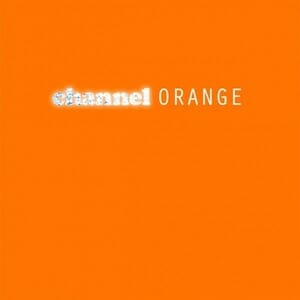Frank Ocean: Channel Orange

As a guest voice on Watch the Throne or a modest presence in the rabble-rousing rap group Odd Future, Frank Ocean tends to leave a calming effect on everything he touches. It’s interesting, then, that he seems at his most comfortable when he’s making big statements, like the one he made with that letter he posted to his Tumblr on July 4, a response to a music critic who asked about gender pronouns on his new album. The letter, originally intended to be liner notes for the physical copy of Channel Orange, told the story of Frank’s first love, who happened to be a male. It was a soft, lovelorn thing that reached for understanding, rejecting labels. “Whoever you are, wherever you are, I’m starting to think we’re a lot alike,” the letter began. “Human beings spinning on blackness, all wanting to be seen, touched, heard, paid attention to.”
That right there, that compassionate understanding of human nature, is the guiding ethos behind Channel Orange, a very beautiful album about not-so-beautiful people. Prostitutes and pimps, drug mules and drug lords, rich kids with too much money to be happy, and at moments, the narrator himself—these are the cast of alienated, paralyzed SoCal misfits swirling around in Frank Ocean’s moral imagination.
Restraint is key to the execution ofChannel Orange, a neo-R&B album that, for all its layered beauty, never overwhelms. Ocean’s not one to shout his words, so his well-wrought stories reveal themselves as organic, integrated parts of the mix. From “Start” to “End,” Channel Orange is a narrative album meant to be heard in the traditional manner. It sounds best when taken in that way.
-

-

-

-

-

-

-

-

-

-

-

-

-

-

-

-

-

-

-

-

-

-

-

-

-

-

-

-

-

-

-

-

-

-

-

-

-

-

-

-








































